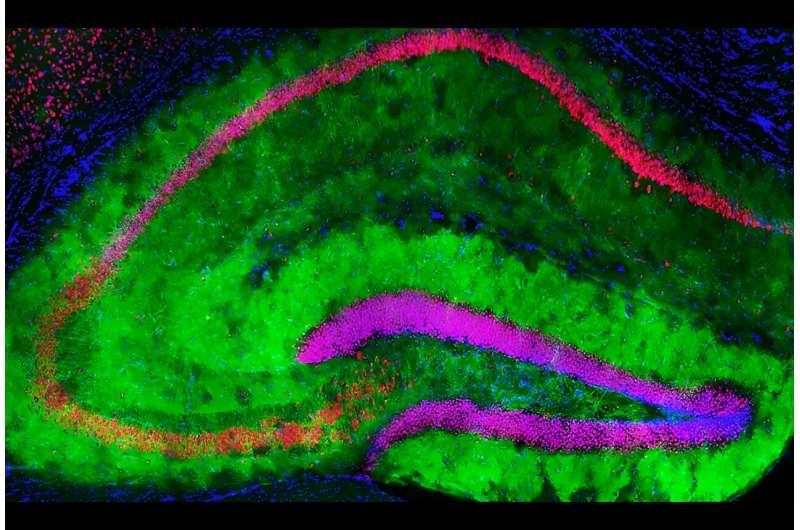This article has been reviewed according to Science X's editorial process and policies. Editors have highlighted the following attributes while ensuring the content's credibility:
fact-checked
peer-reviewed publication
trusted source
proofread
Study suggests astrocytes induce sex-specific effects on memory

Weill Cornell Medicine scientists have uncovered the first evidence that astrocyte receptors can trigger opposite effects on cognitive function in male and female preclinical models. The findings point to astrocytes, brain cells that support and regulate neurons, as key contributors to sex-specific brain mechanisms.
While many studies have tested the behavioral effects of astrocytic receptors, none of them have addressed whether biological sex plays a role and most have tested only males. This study, published on May 24 in Cell Reports, challenges the long-standing assumption that astrocytic signaling has similar cognitive effects in both sexes.
"Our study reveals that previously reported cognitive effects in males can't be extrapolated to females," said Dr. Anna G. Orr, the Nan and Stephen Swid Assistant Professor of Frontotemporal Dementia Research and an assistant professor of neuroscience in the Feil Family Brain and Mind Research Institute and the Helen and Robert Appel Alzheimer's Research Institute at Weill Cornell Medicine.
Changes in astrocytic receptors are seen in various neurological conditions with known sex differences, including neurodegenerative disorders, schizophrenia, stroke and epilepsy. However, the mechanisms promoting sex differences remain poorly understood.
How do male and female brains differ?
In the study, Dr. Samantha M. Meadows, first author and former graduate student in the Orr lab, focused on mGluR3, a predominant glutamate receptor in astrocytes and a top altered gene in dementia. The team used gene editing and stimulation of engineered receptors in animal models to selectively manipulate astrocytes and examine the effects of mGluR3 and related receptors on learning, memory and other cognitive and behavioral outcomes.
The researchers found that increasing astrocytic mGluR3 levels enhanced memory in older females and reducing these levels was sufficient to impair memory in young females, demonstrating that mGluR3 promotes memory recall in females. However, in males, reducing mGluR3 enhanced memory, and increasing the receptor had no effects.
"Interestingly, the cognitive impact of these receptors is not conserved among sexes," Dr. Meadows said.
To understand if these divergent effects were unique to mGluR3 or reflected a broader feature of astrocytic receptor signaling, Dr. Meadows worked with co-author Dr. Adam L. Orr, an assistant professor of research in neuroscience in the Brain and Mind Research Institute and the Appel Alzheimer's Disease Research Institute, to selectively stimulate different astrocytic receptors while mice performed tasks involving learning and memory.
To their surprise, the team found further evidence that receptor activation caused either memory enhancement or impairment, depending on biological sex. "Normal brain function seems to require a sex-specific balance in astrocytic signaling," Dr. Adam Orr said.
This study suggests that mGluR3 modulators being developed for treating disorders such as schizophrenia and anxiety may need further study to assess their impact on different sexes. "Therapeutics influencing astrocytic receptors may cause sex-specific cognitive effects in part due to the divergent roles of astrocytes in males and females," said Dr. Anna Orr.
The lab is investigating what may cause the differential effects and if other brain functions are also changed in a sex-specific way.
More information: Samantha M. Meadows et al, Hippocampal astrocytes induce sex-dimorphic effects on memory, Cell Reports (2024). DOI: 10.1016/j.celrep.2024.114278



















